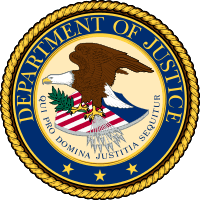Official U.S. Trustee Program Information Concerning Debtor Audits
“The United States Trustee Program is authorized to audit chapter 7 and chapter 13 bankruptcy cases filed by individuals. See Bankruptcy Abuse Prevention and Consumer Protection Act of 2005, Pub. L. No. 109-8, § 603, 119 Stat. 23 (2005) and 28 U.S.C. § 586(f).” This content is the official information sheet provided to debtors verbatim.

“A bankruptcy case may be randomly selected for an audit. In addition, a case may be selected for an exception audit if the debtor’s income or expenditures deviate from the statistical norms for the district in which the case was filed.”
“The audit involves the verification of the income, expenses, and assets reported by a debtor in the bankruptcy schedules and statements. A debtor is required to timely provide additional information and records and to cooperate with the audit firm. The debtor has no additional cost for an audit, except for the cost of making copies of required documents for the audit. The information that a debtor provides in connection with a case is subject to examination by the Attorney General or his designee. “
“Additional disclosures of the information may be to contractors engaged to perform debtor audits, to a bankruptcy trustee when the information is needed to perform the trustee’s duties, to the appropriate federal, state, local, regulatory, tribal, or foreign law enforcement agency when the information indicates a violation or potential violation of law, or to a credit counseling or debtor education provider when the information is necessary to enable the provider to perform its duties. Other disclosures may be made for routine purposes.”
“For a discussion of the types of routine disclosures that may be made, you may consult the United States Trustee Program’s systems of records notice, UST-001, “Bankruptcy Case Files and Associated Records.” See 71 Fed. Reg. 59,818 et seq. (Oct. 11, 2006). A copy of the notice may be obtained, at the following link:
http://www.iustlce.gov/ust/eo/rules regulations/index.htm. “
“The audit firm will file a report containing the results of the audit. 28 U.S.C. § 586(f)(2)(A). If the audit firm finds material misstatements of income, expenses, or assets, the clerk of the bankruptcy court will notify the debtor’s creditors. 28 U.S.C. § 586(f)(2)(A). The report is not a legal determination, and the legal effect of the auditor’s finding of a material misstatement is a question for the court.”
“By statute, debtors are required to cooperate with the audit firm. See 11 U.S.C. § 521 (a)(3) and (4). Failure to cooperate with the audit firm, or failure to reasonably explain to the bankruptcy court any material misstatements contained in the audit firm’s report, may result in the dismissal of the case or the denial or revocation of discharge, and, possibly, referral of the matter to the United States Attorney for criminal investigation. 11 U.S.C. § 727 and 28 U.S.C. § 586(f)(2)(B).”


